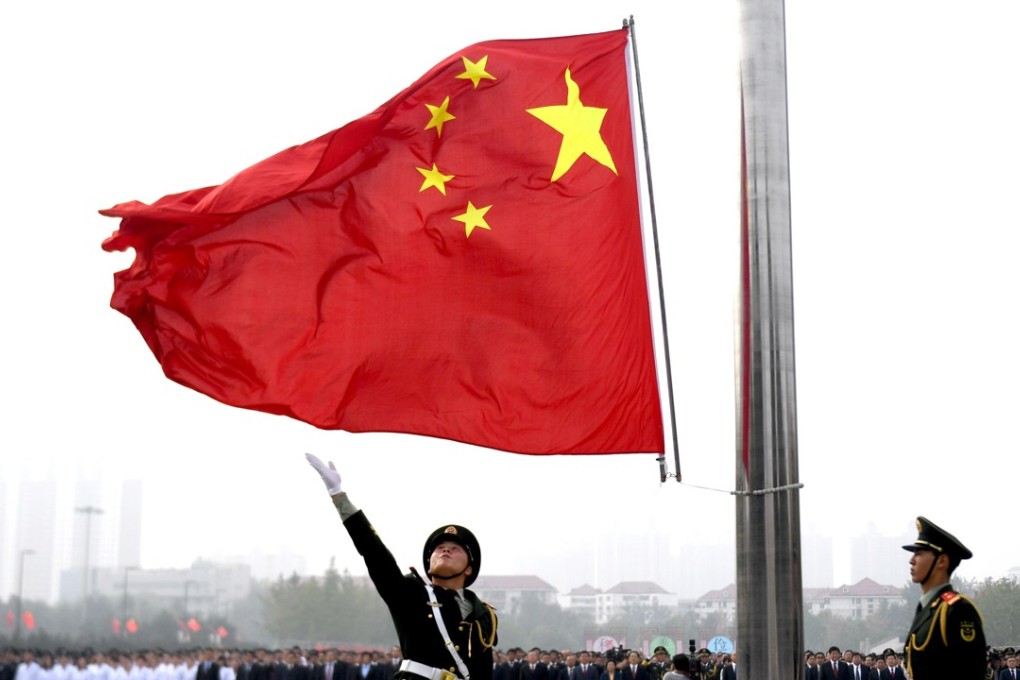Hong Kong may get to decide own penalties for disrespecting national anthem
While China’s top legislature is discussing a three-year jail term under anthem law, how the city will follow is causing controversy

China’s top legislature is considering tougher punishment for those who disrespect the national anthem, but Hong Kong may be allowed to decide its own penalties, and the law will not have a retroactive effect in the city.
The National People’s Congress Standing Committee (NPCSC) on Tuesday discussed introducing an additional clause to China’s Criminal Code to make abuse of the national anthem or flag punishable by up to three years in prison.
The National Anthem Law, which was approved at an NPCSC session in September and came into effect on the mainland at the beginning of the month, is being closely watched in Hong Kong, which will adopt it through its mini-constitution, the Basic Law.
The NPCSC on Tuesday also discussed adding the bill to Annex III of the Basic Law, which would enable the city to adopt the legislation.
“When Hong Kong is transforming the clause into local law, the matching penalty should not be lower than the national standard otherwise it will be seen as violating the implementation of the higher-level law,” said Tian Feilong, an academic at Beihang University’s law school in Beijing.